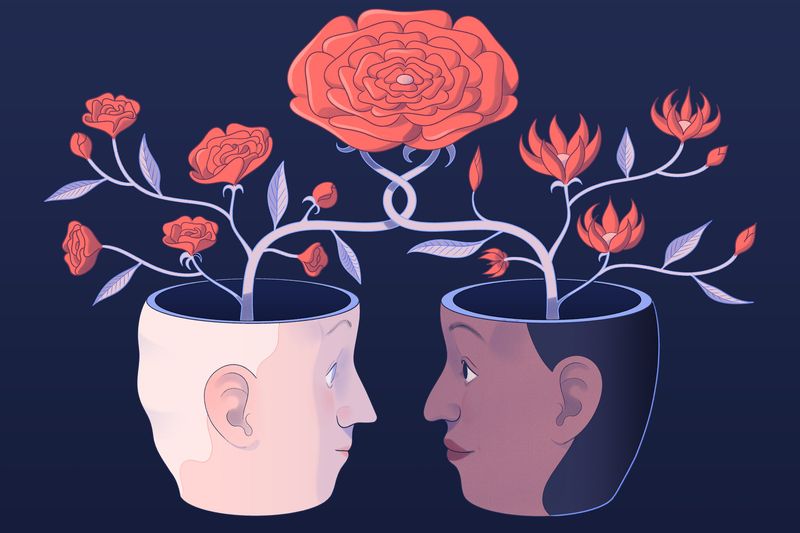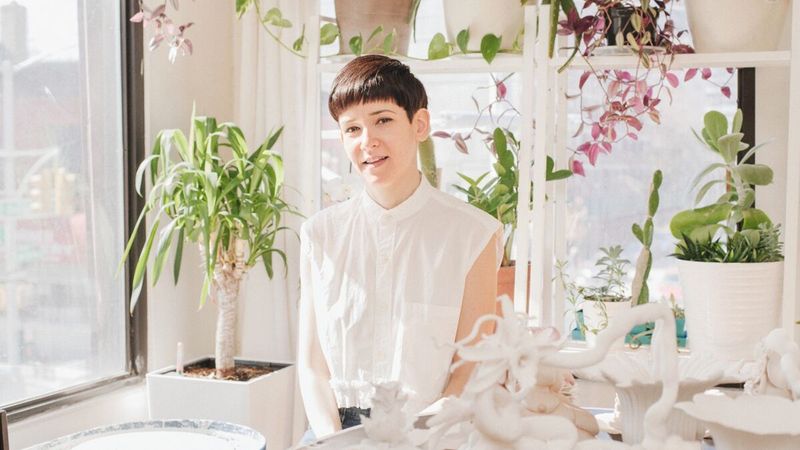In today’s society, the dynamics of marriage are evolving as gender roles shift. Women are increasingly marrying partners with lower educational qualifications, challenging traditional norms.
This trend reflects a broader redefinition of compatibility, where emotional intelligence, shared values, and mutual support take precedence over matching educational credentials. Here are 15 reasons illustrating why women now marry down educationally, as gender roles continue to evolve.
1. When Brains Meet Balance, Not Just Degrees
The modern relationship landscape values equilibrium over academic parity. Women today seek partners who complement their intellectual pursuits with a balanced life perspective. The focus is not solely on academic achievements but on how a partner contributes to a harmonious relationship.
A diploma may signify educational success, but it doesn’t guarantee emotional balance. Intelligent discourse combined with life wisdom creates a fulfilling partnership that many women now prioritize. They find balance and support, not just in degrees, but in shared emotional intelligence and life experiences.
This shift signifies a move towards valuing a well-rounded character over educational accolades, enhancing both partners’ growth in the relationship.
2. Emotional Maturity Matters More Than Matching Résumés
In the realm of romantic partnerships, emotional maturity often takes precedence over academic credentials. Women are progressively valuing partners who exhibit empathy, self-awareness, and the ability to navigate complex emotions.
These traits often prove more crucial in maintaining a healthy, long-lasting relationship. In a world where change is constant, emotional intelligence helps couples weather storms together, ensuring stability and mutual understanding.
The depth of emotional connection often outweighs a stacked résumé, as it fosters an environment where both parties can thrive emotionally and intellectually, without the constraints of traditional educational expectations.
3. Financial Independence Gives Women More Dating Freedom
Women’s increasing financial independence has reshaped the dating landscape, granting them the liberty to choose partners based on personal compatibility rather than financial necessity. As women achieve economic self-sufficiency, the pressure to “marry up” diminishes.
This newfound financial freedom allows women to prioritize personal happiness and connection over economic gain. They can seek relationships that align with their values and aspirations, rather than being dictated by financial calculations.
With financial stability, women are empowered to form partnerships that are emotionally rewarding and supportive, choosing companions who enhance their lives rather than just their bank accounts.
4. Ambition Looks Different in a Post-Pandemic World
Ambition has been redefined in the wake of the pandemic, shifting from traditional career trajectories to more diverse forms of success. Women are embracing partners whose ambitions align with values such as flexibility, work-life balance, and personal fulfillment.
The pandemic has highlighted the importance of adaptability, leading women to value partners who can navigate change gracefully. Ambition now includes the pursuit of meaningful experiences and a balanced lifestyle.
This broader definition allows women to appreciate partners who may not fit the conventional mold of high achievers but who contribute to a fulfilling and adaptable life together.
5. Many Women Don’t Want a “Rival”—They Want a Partner
In today’s evolving relationship dynamics, many women seek companions rather than competitors. The traditional notion of marrying a partner with similar or higher educational status often bred rivalry rather than camaraderie.
Women now desire partners who support and complement their goals, creating a partnership built on collaboration rather than competition. This shift encourages a more harmonious relationship dynamic, rooted in mutual respect and shared aspirations.
Choosing a partner who is an ally rather than a rival fosters a supportive environment where both individuals can pursue their passions without fear of overshadowing or being overshadowed.
6. High-Earning Women Are Less Focused on Status
For high-earning women, status is no longer the paramount criterion in choosing a partner. The emphasis has shifted to finding someone who provides emotional support and shared experiences rather than a comparable salary or prestigious title.
These women recognize that emotional stability and personal fulfillment outweigh societal status symbols. They seek partners who contribute to their happiness and complement their lifestyles, regardless of their educational or professional background.
This focus on personal well-being over external validation allows women to form partnerships that are rooted in genuine connection and shared values, not just social standing.
7. Women Are Prioritizing Shared Values Over Shared GPAs
In the evolving landscape of relationships, shared values trump shared GPAs. Women increasingly prioritize aligning with partners who resonate with their core beliefs and principles.
This alignment fosters a deeper connection that goes beyond academic credentials, creating a foundation for a strong, cohesive partnership. Shared values ensure that both parties are moving in the same direction, strengthening their bond and mutual support.
By focusing on values rather than educational achievements, women find partners who genuinely complement their lives, leading to more meaningful and lasting relationships.
8. Education Level Doesn’t Always Reflect Emotional Intelligence
Educational qualifications rarely capture the full spectrum of a person’s intelligence, especially in the emotional realm. Women increasingly understand that a degree doesn’t necessarily equate to high emotional intelligence, which is crucial for nurturing a successful relationship.
Emotional intelligence involves empathy, communication, and the ability to connect deeply with others, traits that are not always taught in academic settings. Women seek partners who excel in these areas, valuing intuitive understanding over formal education.
This perspective highlights the importance of emotional depth and connection, encouraging women to look beyond the surface of academic accolades when choosing a partner.
9. The Social Pressure to “Marry Up” Has Lost Relevance
Social norms urging women to “marry up” have become less relevant in today’s society, where personal happiness and compatibility take precedence. Women are free to choose partners based on their genuine connection, rather than societal expectations.
This shift empowers women to pursue relationships that are emotionally satisfying and supportive, without the burden of conforming to outdated norms. It allows for more authentic partnerships where both individuals can thrive.
By focusing on mutual respect and shared aspirations, women are redefining what it means to be in a successful partnership, moving beyond traditional social pressures.
10. Kindness Trumps Credentials in Long-Term Happiness
In the pursuit of long-term happiness, kindness often outweighs credentials. Women are increasingly drawn to partners who exhibit compassion and understanding, traits that contribute significantly to relationship satisfaction.
While educational achievements are valued, they pale in comparison to the warmth and kindness a partner brings to the relationship. This focus on empathy fosters a nurturing environment where both partners can grow and support each other.
By emphasizing kindness over credentials, women create a foundation for enduring happiness and mutual respect, ensuring that their relationships thrive in the long run.
11. Women Want Men Who Support—Not Compete With—Their Goals
In modern relationships, women value partners who support their goals rather than compete with them. This shift reflects a broader understanding of partnership as a collaborative effort, where both individuals work towards shared dreams.
Supportive partners provide encouragement and affirmation, contributing to a positive dynamic that enhances both individuals’ growth and happiness. Women seek allies in their partners, fostering an environment of mutual support and respect.
By choosing supportive partners, women create a harmonious relationship that nurtures personal aspirations and strengthens their bond, moving away from competitive dynamics.
12. Intellectual Chemistry Isn’t Only Found in Degrees
Intellectual chemistry extends beyond formal education, encompassing curiosity, open-mindedness, and the ability to engage in stimulating conversations. Women appreciate partners who challenge their thinking and provoke insightful discussions, regardless of their academic background.
This type of intellectual connection is often more rewarding than mere credential comparison, fostering a deeper understanding and appreciation between partners. It encourages growth and learning within the relationship.
Women value this form of connection, recognizing that true intellectual chemistry is about engaging minds and shared curiosity, not just diplomas.
13. Some Highly Educated Men Carry Traditional Expectations
Despite high educational qualifications, some men maintain traditional expectations in relationships, which can clash with modern women’s perspectives. Women prefer partners who embrace equality and eschew outdated gender roles, even if their education suggests otherwise.
This discrepancy often leads women to seek partners with a more progressive mindset, valuing respect and equality over traditional expectations. The ability to adapt to evolving roles is crucial in modern partnerships.
By choosing partners who align with contemporary values, women foster relationships that are equitable and supportive, creating a space where both individuals can flourish.
14. Modern Marriages Thrive on Flexibility
In the modern world, flexibility has become a cornerstone of successful marriages. Women value partners who adapt to changing circumstances and embrace a dynamic approach to life and relationships.
This flexibility allows couples to navigate life’s challenges together, fostering resilience and mutual support. It encourages a partnership where both individuals can pursue personal and shared goals without rigid constraints.
Women appreciate this adaptability, seeking partners who are open to new ideas and willing to evolve, ensuring that their relationship can weather any storm and flourish in the face of change.
15. Women Are Redefining What “Successful Partner” Means
The definition of a “successful partner” is being reimagined by women, who prioritize qualities such as empathy, creativity, and community involvement over traditional markers of success. Women seek partners who contribute to their well-being and share their vision of a fulfilling life.
Success is now measured by the depth of connection, shared experiences, and the ability to support each other’s dreams. This redefinition allows women to choose partners who align with their personal growth and community values.
By focusing on these attributes, women create partnerships that are rich in meaning and mutual support, ensuring long-lasting happiness and fulfillment.
















